News archive
On this page you can search for older news. Choose a topic, type of news or enter your own keyword to filter out news.
View compact
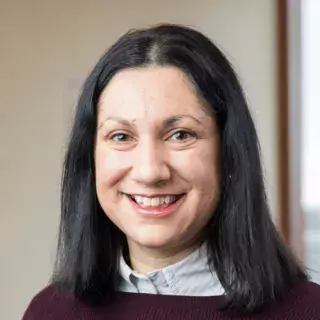
Being on parental leave is protective against poorer mental health particularly among mothers, with evidence of this beneficial effect continuing in later life, according to a systematic review in The Lancet Public Health.
News
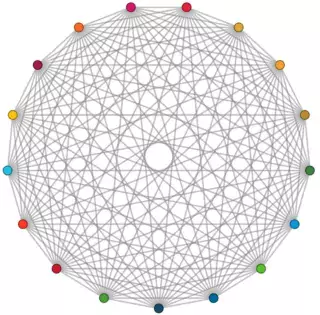
Our newest team member Irene Wanyana joins the Department of Global Public to pursue her PhD. In her research project titled Multisectoral Approaches to Sustainable Health in Uganda, A focus on the role of climatic variabilities on maternal and child health, Irene aims to explore the linkages that exist between health and other Sustainable Development Goals (SDG) in Uganda.
News
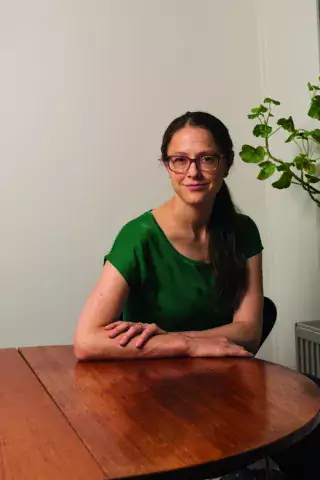
The Centre for Health Crises at KI is expanding its group of expert coordinators. This time it is the area of expertise is health systems resilience, and it comes in the form of Helena Nordenstedt, associate professor and medical doctor, with an extensive experience. Her research interests span the area of global health and resilience to crises on a systems level.
News

The Centre for Health Crises at KI has published its first annual report, covering activities at the Centre during 2022. Since it is the centre's first year in operation, the report also outline the background to the establishing of the centre, the centre's organisational structure and introduces the staff.
News
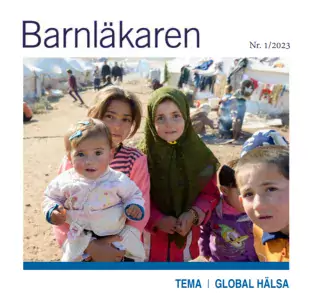
This year's first edition of Barnläkaren, the Swedish Paediatric Assosiaction's magazine, is published. The theme of the latest issue is global health and the Global Child Health and Sustainable Development Goals research team leader Tobias Alfvén was the guest editor. Download the paper to read about the research from the child health team members.
News
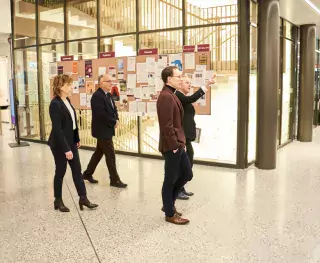
Minister for Education Mats Persson met researchers and students when he visited Karolinska Institutet on 1 February. Topics of discussion with the students included the conditions relating to clinical placements, student funding rules and the situation for overseas students and doctoral students. The researchers, for their part, talked about the progress being made in areas such as precision medicine and about KI’s preparedness for new health crises.
News
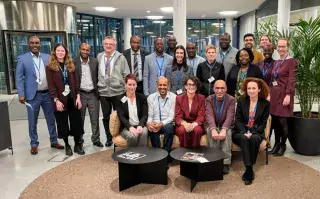
In September 2O22 the HoliCare project was launched under the coordination of KTH Royal Institute of Technology in Sweden and gathering 14 partners across Africa and Europe including Karolinska Institutet. The project’s ambition is to tackle the challenge of diagnostics, treatment and prevention of Respiratory Tract Infections (RTIs), the leading cause of death in Low- and Middle-Income Countries (LMICs).
News

The world is quickly approaching a tipping point when it comes to preventing many of the devastating consequences of the climate crisis. We see the effects of it on the environment and our planet, and in recent years the discussion on the effects of climate change on human health has grown. But what do we know about the effects on children? Doctoral student Daniel Helldén, presents at the Global Child Health conference organized by University of Calgary.
News
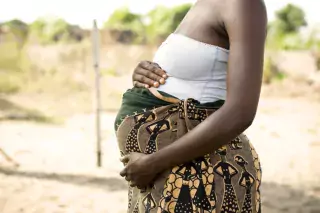
Antiviral drugs almost completely reduce the risk of mothers passing on HIV infection to their children, even in a low-income country with a high HIV incidence such as Tanzania, according to a new study in The Lancet HIV by researchers from Karolinska Institutet. The discovery raises hopes of achieving the World Health Organization’s goal of eliminating the spread of infection from mother to child.
News
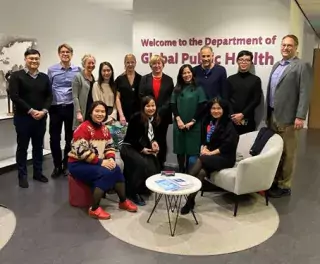
The newborn care researchers in the global child health and sustainable development goals team have had a visit from research colleagues at the Phu San Hospital in Hanoi, Vietnam, November 23-26. The visit included workshops on ongoing and upcoming collaborations and studies including the NeoSpirit project and planning for future Vietnamese PhD candidates as well as visiting hospitals.
News
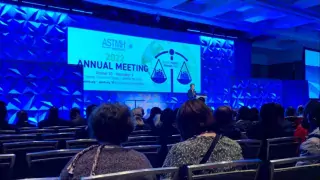
The world's biggest community for tropical medicine and global health, the American Society for Tropical Medicine & Hygiene (ASTMH), had its annual meeting between the 30th of October and November 3rd in Seattle, USA. Global Child Health and SDG research team members Mattias Schedwin and Kevin Baker that participated and were selected to present their research, share their experiences and thoughts from the conference.
News
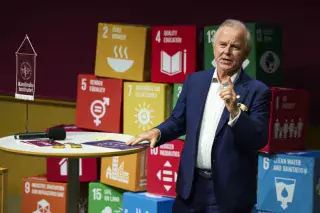
“Our planet, our health – an intergenerational dialogue” – the title of this year’s Rosling Seminar at Karolinska Institutet. The seminar, which was held 5 October, was jointly arranged by KI and the WHO with participants attending on site and online.
News

The research team Global Child Health and the Sustainable Development Goals in collaboration with the Nobel Prize Museum hosted a seminar on global child health as part of the Nobal Calling Stockholm week. Juliet Mwanga-Amumpaire from Mbarara University in Uganda and Tobias Alfvén, associate professor at the Department of Global Public Health, discussed why five million children die every year and what is needed for more children to survive.
News

Various health care interventions can, to put it in simplified terms, yield different amounts of health per invested Swedish krona. But how can subjective experiences, such as quality of life, be brought into these calculations? Researchers at Karolinska Institutet find ways to make health economic decisions.
News

How is health equity even calculated? Researchers Emelie Agardh and Matteo Bottai at Karolinska Institutet are looking for new methodological paths, among other things inspired by the game Master mind.
News

We know that lifestyle affects health. But even factors that you cannot control have an influence. Here are six examples.
News

Have a car. Don’t be poor. Don’t have a stressful job. Age, gender and socioeconomics are some of the factors that affect your risk of developing an illness and of dying prematurely. Sweden has set the goal of levelling out influenceable health gaps within one generation. But is this goal realistic? And why is it so difficult to achieve? Read an article series about health inequities from the Swedish magazine Medicinsk Vetenskap.
News
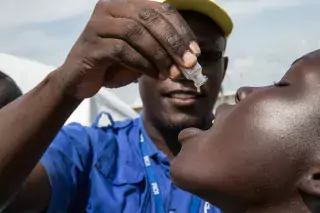
Conflict causes deaths and injuries, as well as health consequences from the displacement of populations, breakdown of health services and an increased risk of disease transmission. But in DRC that has suffered from conflict and instability for decades, conflict alone is a poor indicator for child health. In his study, Mattias Schedwin, compares coverage of key child health policy indicators across provinces in DRC and their association with child mortality and level of conflict in the country.
News
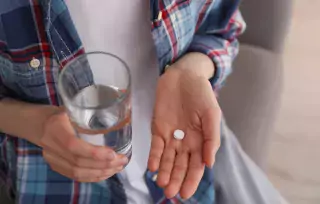
A new study published in The Lancet shows that medical abortion can be carried out both safely and effectively via telemedicine, without a routine ultrasound examination. The study, which is a collaboration between researchers at Karolinska Institutet and the University of Cape Town in South Africa, highlights the opportunities to provide safe and effective abortion services in low-resource settings.
News

Researchers at Karolinska Institutet and the University of Bristol have investigated the relationship between mode of delivery and sexual well-being several years after childbirth. The study, published in the journal BJOG, showed no difference in sexual frequency or sexual satisfaction in women who were delivered vaginally or by caesarean section.
News

Hearing the word ‘war injury’, one might think of bullet wounds, torn off limbs or burns from explosions. And whilst injuries such as these certainly feature in the palette of suffering that war brings, the reality is more complex, and to some extent perhaps also less cinematic.
News
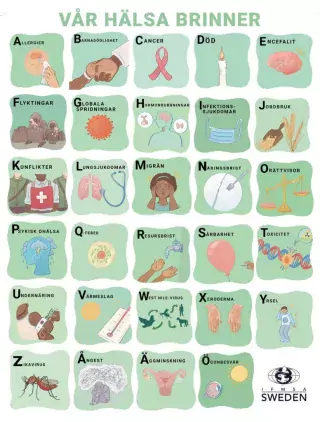
The students' association IFMSA runs the Vår hälsa brinner (Our health is on fire) campaign to raise awareness and educate about the health impacts of climate change. Students see a need to work concretely on the issue, not least during their medical training. They have made an alphabet series illustrating the impact of climate change on public health and hold educational workshops. During Politician's Week in Almedalen, they held a workshop and distributed posters with the alphabet.
News
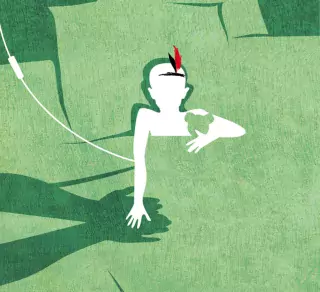
In March 2022, André Thunberg had his ISP seminar at the Department of Global Public Health. His research focuses on the prevalence and management of severe paediatric illness in Malawi. Besides his doctoral studies, André also works at Astrid Lindgren Children’s Hospital as a resident doctor.
News
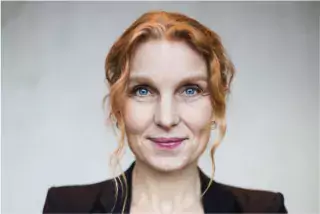
Anna-Mia Ekström has been involved with the Centre for Health Crises since the very beginning and is now a part of its first steering group. Before the Centre was formed, she was a member of KI’s interdisciplinary resource team post COVID-19 (KIRP), and the task force that helped shape the centre. Just like with her many other engagements her aim is to make a difference, especially for the most vulnerable.
News

The majority of cold wave related deaths occurred in middle-income countries followed by high-income countries, deaths were likely to occur during heat waves than cold waves or severe winter weather, in particularly in high-income countries and increased CO2 emissions can result in an increased number of deaths during severe weather events. That is the conclusion of a recently published study that looked at extreme weather events and deaths in the years 1999 to 2018.
News
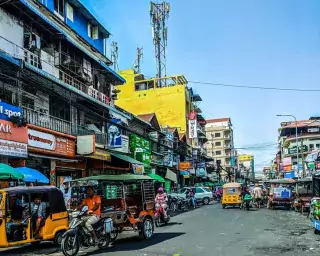
Friday May 20, doctoral student Daniel Helldén had his halftime seminar at the Department of Global Public Health. Using a Sustainable Development Goals (SDG) Synergies Approach and interviews with stakeholders, Daniel aims to investigate the views and perceptions on the linkages between SDGs, different sectors and child health in Cambodia. Through machine learning, he also investigates non-health risk factors of morbidity from infectious diseases.
News
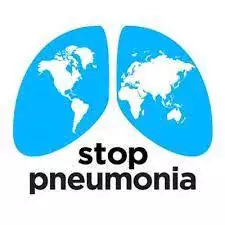
The Every Breath Counts Coalition Research Group is launching a PhD and early career researcher network to support emerging researchers working across any discipline in the area of pneumonia. The purpose is to promote networking and publish a monthly blog where early career researchers, and new research in the field are highlighted.
News

When others run away from bad things, Johan von Schreeb can be found dashing towards them. He has a wealth of experience in bringing order to chaotic situations – but as an administrator, he’s a complete disaster. Meet the professor who wants to control the health crises of the future.
News
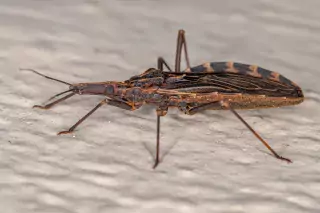
Researchers at Karolinska Institutet have mapped how the parasite Trypanosoma cruzi forms new variants that are more effective at evading the immune system and causing disease. Their findings can give rise to new methods for diagnosing, preventing and treating Chagas disease, which affects millions of people in Central and South America, causing thousands of deaths every year. The study is published in the journal eLife.
News
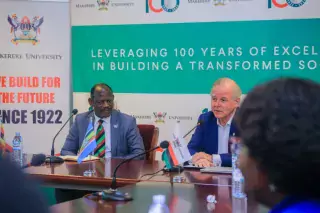
One of KI’s largest international collaborations is with Makerere University in Uganda. In time for Makerere’s 100th anniversary, the partnership is to manifest itself in a Centre of Excellence for Sustainable Health. A delegation from KI travelled in May to Uganda to cement the relationship.
News

Two of this year’s honorary doctors, HRH Prince Daniel and Soumya Swaminathan, took part in a seminar on sustainable health arranged by Karolinska Institutet on Friday 29 April. The discussions centred around prevention and long-term health.
News
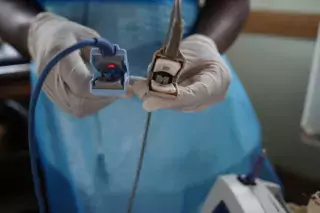
A study in rural Malawi underscores the need for better clinical management of severely ill children with very low blood sugar or blood oxygen levels. The study by researchers at Karolinska Institutet in Sweden and the Parent and Child Health Initiative in Malawi, among others, found high mortality rates for children with either of these symptoms even when they were admitted to a hospital. The findings are published in the journal Bulletin of the World Health Organisation.
News
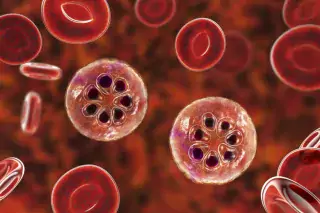
By analysing samples from patients who have been treated for malaria in Sweden, researchers at Karolinska Institutet can now describe how the immune system acts to protect the body after a malaria infection. The results, published in the journal Cell Reports, provide knowledge that can aid in the development of more effective vaccines against the disease.
News
Christine Fransman was looking for something new in her career and wanted to learn more about health care in disasters when she found the course Public Health Response in Disasters at Karolinska Institutet. She has a background in health science and works as a research manager in a hospital in her native Netherlands.
News
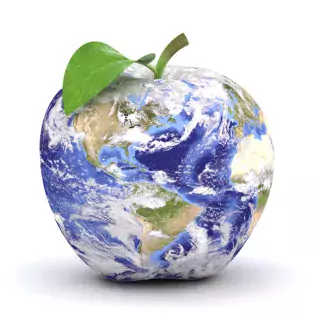
Six students from the Master's Programme in Global Health guested the Global Child Health and Sustainable Development Goals team meeting to present their thesis projects. Many thanks to all of you that joined our meeting and a special thanks to the students for their nice presentations and the good discussions that followed.
News

Global warming is likely to increase the number of people requiring hospitalization due to critically low sodium levels in the blood, a condition known as hyponatremia. A new study from Karolinska Institutet projects that a temperature rise of 2 degrees Celsius would increase the burden on hospitals from hyponatremia by almost 14 percent. The findings are published in the Journal of Clinical Endocrinology and Metabolism.
News
The Department of Global Public Health (GPH) has got two new doctoral student representatives; Soha el Halabi and Katrine de Angeles. They represent the students in meetings and committees at the department and work to help and support new and existing doctoral students.
News
On the 3rd of March, doctoral student Vanda had her half-time seminar online via Zoom and in Widerströmska huset. Vanda is a Mozambican healthcare practitioner specialising as a pediatric surgeon in Spain and is now using her experiences from clinical work into research in her thesis titled:
‘Acute pediatric injury in a low-resource African setting during the COVID-19 pandemic: Insight on injury epidemiology and care from the largest hospitals of Mozambique’
‘Acute pediatric injury in a low-resource African setting during the COVID-19 pandemic: Insight on injury epidemiology and care from the largest hospitals of Mozambique’
News
Over the course of two half-days students, researchers, & implementers from a range of disciplines gathered online to examine matters of inequity and vulnerability in relation to the COVID-19 pandemic in the Nordic countries. The event was hosted by the Nordic Pandemic Network, an interdisciplinary collaboration on COVID-19 & its impact in the Nordic region, which KI is a part of along with The University of Copenhagen, Roskilde University, University of Stavanger & Hanken School of Economics.
News
The students in the 2021/2022 year of the Erasmus Mundus Master programme Public Health in Disasters are about to complete their time in Sweden and move on. We spoke to Rickkye Gan and Collins Santhanasamy about what made them interested in the programme, what they have learnt and what they will take with them from their time in Sweden.
News

Last week the Department of Global Public Health in cooperation with War Child Sweden and the Swedish Red Cross University College hosted a guest lecture with Professor Mark Jordans. In his presentation, Professor Jordans presented interventions and evidence on how to promote the mental health and well-being of children in settings made fragile by armed conflicts.
News

Kelly Elimian is a Postdoctoral Researcher at Karolinska Institutet in the team Global Child Health and Sustainable Development Goals. His research focuses on strengthening cholera interventions in the north-eastern part of Nigeria and making sure available interventions are properly implemented across cholera endemic countries, of which Nigeria is one.
News
Anna Kågesten and Karin Båge, Assistant Professor and PhD-student respectively, at the Department of Global Public Health, have co-authored a newly published report for the Expert Group on Aid Studies. The report aims to improve the understanding of norms and values that undermine vs. support sexual and reproductive health and rights (SRHR), and to identify gaps and possibilities for Swedish development cooperation to find ways to relate to these norms and values.
News

Never before have so many people been displaced by war and poverty. Such change and loss can leave deep psychological scars. A new thesis by Doctor Maria Sundvall at Karolinska Institutet is based on surveys and interviews with asylum seekers and refugees in Sweden about their encounters with the psychiatric and primary care services. The results of her studies can make a significant contribution to the dialogue between migrants, clinics and authorities.
News
Last month was the half time seminar of Hang Tran Thi Thanh with the title: Clinical and experimental implementation of standardised hypothermic treatment for neonatal asphyxia in low-income settings.
News

Line Gordon and Tobias Alfvén participated in Nobel Calling Stockholm 2021 with a lecture arranged by Karolinska Institutet and Stockholm Resilience Center at Stockholm University. Focusing on the United Nations Panel on Climate Change (IPCC)'s latest report, the current state of knowledge about climate and environmental change and how this affects the world's children was summarized and discussed.
News

The current pandemic shows how quickly health misinformation can spread. However, there are tools to debunk misinformation as demonstrated by a new study on health communication strategies from Karolinska Institutet, published in the journal BMJ Global Health. The study, which focuses on misinformation about typhoid in Sierra Leone, also shows that explicitly addressing falsehoods seems more effective in busting misbeliefs than simply stating scientific facts.
News
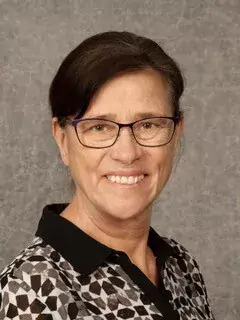
Mariam Claeson is the senior project manager for the Political Economy of Adolescent Mental Health project at the Department of Global Public Health. After many years working abroad she is back at KI where her journey started as a medical student. She discusses progress in child health globally especially reduction in child mortality but is concerned about the major setbacks caused by the pandemic. Her focus now is on how to improve the mental health and wellbeing of children and adolescents.
News
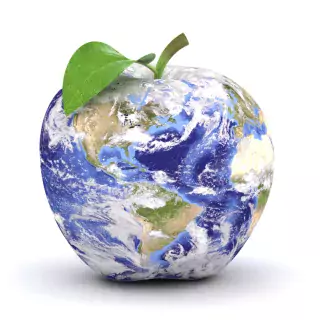
Implementation of WHO’s recommended public health policies on alcohol, unhealthy foods and tobacco has been slow globally, according to a study led by researchers at Karolinska Institutet and the London School of Hygiene & Tropical Medicine, published in the journal The Lancet Global Health. The study found particularly low implementation in poor, less democratic countries and where corporations had more influence for example through corruption and political favoritism.
News
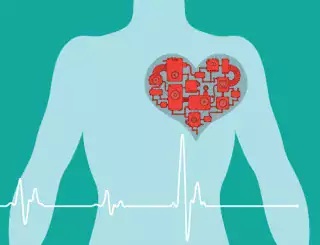
Statins are a recommended and common intervention for preventing cardiovascular events by reducing levels of lipoprotein cholesterol in the blood. During the pandemic, it has been debated whether statins influence the risk of death from COVID-19. Researchers at Karolinska Institutet have now conducted the largest population study to date in the field. The study, which is published in PLOS Medicine, indicates that statin treatment slightly lowers COVID-19 mortality.
News
